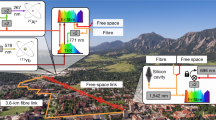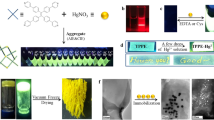Abstract
I TRUST that you will allow an admirer of John Harrison to be a little indignant with your reviewer, “R. A. S”., of Lt.—Comdr. Gould's book (NATURE, March 22, p. 417). “To some he [Harrison] appears incurably clumsy. His taste for making clocks of wood, his complications, his retrograde inventions like the grasshopper escapement and the gridiron pendulum stand to his debit”. These are surely strange words for a man who (unless I misinterpret the initials) has been president of the Royal Astronomical Society, in the house of which stands that exquisite piece of mechanism, the Harrison clock, lovingly restored and enthusiastically described by Mr. E. T. Cottingham (Monthly Notices, R. A. S., lxx. 25, Nov. 1909). Harrison, it must be remembered, was the son of a carpenter, and brought up to that trade, whence his early clocks with wooden wheels. Harrison taught himself to be a clockmaker, and having a horror of friction, devised the delicately beautiful grasshopper escapement to be very nearly frictionless. Harrison invented the gridiron compensation, and applied it not only to pendulum-clocks but also to his first chronometers, to which Graham's mercury compensation was not suitable. Harrison was not alone among inventors in doing things at first in too complicated a way, learning simplicity by experience. It is common knowledge that most of Harrison's methods were almost immediately discarded—and something the same may be said of Isaac Newton—but it is extraordinary that any one who has seen the Harrison clock at the Royal Astronomical Society, or his fourth chronometer which won the prize, can call him incurably clumsy and retrograde !
This is a preview of subscription content, access via your institution
Access options
Subscribe to this journal
Receive 51 print issues and online access
$199.00 per year
only $3.90 per issue
Buy this article
- Purchase on SpringerLink
- Instant access to the full article PDF.
USD 39.95
Prices may be subject to local taxes which are calculated during checkout
Similar content being viewed by others
Rights and permissions
About this article
Cite this article
HINKS, A. John Harrison. Nature 113, 570 (1924). https://doi.org/10.1038/113570c0
Issue date:
DOI: https://doi.org/10.1038/113570c0



